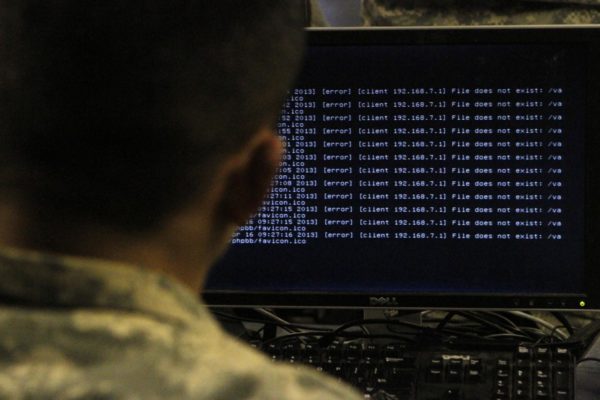ADELPHI, Md.—The U.S. Army Research Laboratory (ARL) is partnering with The University of Texas at Austin and The University of Texas System in an expansion of its open campus initiative, establishing ARL South on the campus of UT Austin.
Like ARL West, located at the University of Southern California, ARL South will leverage regional expertise and facilities throughout the south central United States to accelerate discovery, innovation and translation of science and technology in support of the Department of Defense’s Third Offset Strategy and the Army of 2050. Nationally, ARL is tapping regional resources in hopes of leveraging knowledge and expertise from previously untapped intellectual markets to quicken the technology maturation process, allowing the Army to expand technology expertise in critical areas.
Announced this morning at ARL’s open house at the Adelphi Laboratory Center in Adelphi, Md., ARL South will expand research through co-location and close collaboration. Projects are already planned with UT Austin, UT El Paso, UT Dallas and UT Arlington. And Army Research Lab scientists and engineers hope to collaborate with other universities in Texas and throughout the south central region of the U.S. through ARL South.
“Through the Open Campus framework, ARL scientists and engineers collaborate side-by-side with visiting scientists in ARL’s facilities and similarly as visiting researchers at collaborators’ institutions,” said Philip Perconti, Ph.D., acting ARL director. “Central to the research collaborations is mutual scientific interest and investment by all partners.”
Perconti said the global academic community, industry, small businesses and other government laboratories benefit from this kind of engagement through “collaboration with ARL’s specialized research staff and unique technical facilities as well as its understanding of Army technology needs.”
UT System Chancellor William H. McRaven, who earlier this year was named by U.S. Secretary of Defense Ash Carter to the newly formed Defense Innovation Advisory Board, believes strongly in the role universities play in advancing national security.
“Deeper connections among the military, universities and the technology industry are key to addressing our nation’s most exigent security challenges,” McRaven said. “As a member of the military, I witnessed firsthand how science and innovation could save lives and win battles. Now, at UT System, I am excited to be a part of providing a fertile environment where discoveries and innovation thrive.”
ARL South’s initial focus will primarily be materials and manufacturing, including additive manufacturing, biosciences, energy and power, according to Perconti. Research in cyber sciences and intelligent systems will also be areas of emphasis.
“As we develop this new, distributed campus, we will also be establishing new relationships with other researchers in academia and industry in the south central region of the U.S. to augment work ongoing there and to augment work at our current sites,” Perconti said. “This collaboration, in an open work environment, will significantly enhance the work we do for our soldiers and the nation to establish and maintain a technological edge over our adversaries.”
Establishing research teams with regional partners will lead to new technology directions, new perspectives on Army problems, new industry collaborators, and ultimately new discoveries that will help the Army solve current and future challenges.
“UT Austin is excited to serve as host for Army Research Lab’s new ARL South outpost as it forges connections with our campus and with universities in the region,” said Dan Jaffe, vice president for research at UT Austin. “We look forward to joining together to create new knowledge that can produce the technologies that continue to give our armed forces the advantages they need to succeed in their future missions. Already, several groups of UT Austin scientists and engineers are working together to map out their collaborative activities.”
While the headquarters for ARL South will be located at UT Austin, ARL research teams will work at a number of other institutions throughout the region. ARL plans to leverage research focused on solving non-military applications and adapt them for Army and DOD use. Researchers interested in learning more should contact UT Austin’s Office of the Vice President for Research.




